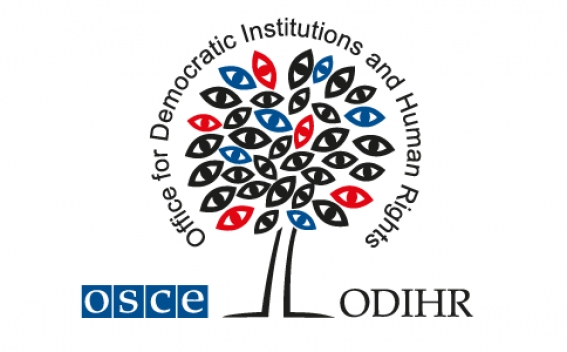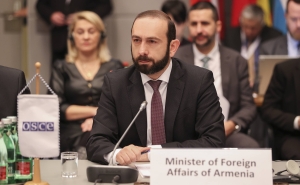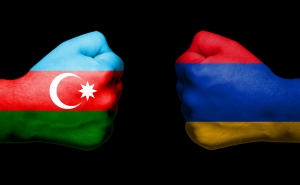OSCE/ODIHR Presents Proposals Based on the Results of Armenian Parliamentary Elections

The OSCE Office for Democratic Institutions and Human Rights (OSCE/ODIHR), which has been invited by the government of the Republic of Armenia to carry out an Election Observation Mission (EOM) for the April 2, 2017 parliamentary elections, published an overview report based on observation results. The OSCE/ODIHR EOM assessed compliance of the electoral process with OSCE commitments, other international obligations and standards for democratic elections, as well as national legislation.
According to the report, the Election Day was calm and peaceful overall. Voting procedures were generally followed and the fundamental freedoms were respected.
Welcoming legal reforms and introducing new technologies to reduce election legislation violations, the authors have called for efforts to prevent the dissemination of information on pressure on public servants and private sector employees, which leads to distrust among voters. The Election Day was generally asessed as peaceful and calm, despite some organizational issues.
Noting that the OSCE is ready to assist Armenia in the further improvement of the electoral process, the authors of the report made some proposals in that direction. The report notes that Armenia should continue to harmonize the electoral process with the OSCE standards, taking into consideration the recommendations of this and past OSCE/ODIHR reports that have not yet been implemented. Moreover, any change should be made as a result of wide discussions and will be valid until the next election.
According to the report, to guarantee equal suffrage, the authorities should consider measures to enhance access to voting procedures for persons with physical disabilities and reduced mobility. Besides, it is necessary to take steps to prevent the accumulation of citizens in polling stations.
The authors of the report point out, that the changes in the electoral process, based on previous OSCE/ODIHR recommendations, are regarded as a step forward in promoting confidence in the electoral process. The report positively noted the publication of scanned copies of signed voter lists from polling stations as an important deterrent of voter impersonation, but recommends that the authorities take measures to guarantee the protection of voter’s private data. Praising the improved accuracy of voter lists, the report calls on the authorities to continue measures to reduce the number of voters without a complete address.
According to the authors of the report, the Central Election Commission (CEC) met all legal deadlines and conducted its work in a transparent manner while operating collegially and efficiently. They issued a number of clarifications of the Electoral Code mostly at the request of NGOs and proactively reacted to campaign violations.
As an omission many OSCE/ODIHR EOM interlocutors stated that a lack of genuine debate among political parties, and between candidates and voters, limited the information available to voters to make an informed choice. However, positively, there is no interference in Internet freedom contributing to increased political pluralism in media.
The report also emphasized the strengthening of some legal provisions related to the transparency of election campaign financing.
It should be noted that these elections were the first held under the new governing system. As a result of constitutional amendments approved in a referendum on December 6, 2015, Armenia is passing from a semi-presidential to a parliamentary system. These amendments reduced the powers of the president in favour of the prime minister and the parliament and changed the electoral system from a majoritarian one to a largely proportional system, with district lists.
Info
The Office for Democratic Institutions and Human Rights (OSCE/ODIHR) is OSCE’s principal institution to assist participating States “to ensure full respect for human rights and fundamental freedoms, to abide by the rule of law, to promote principles of democracy and (…) to build, strengthen and protect democratic institutions, as well as promote tolerance throughout society” (1992 Helsinki Summit Document). This is referred to as the OSCE human dimension.
The OSCE/ODIHR, based in Warsaw (Poland) was created as the Office for Free Elections at the 1990 Paris Summit and started operating in May 1991. One year later, the name of the Office was changed to reflect an expanded mandate to include human rights and democratization. Today it employs over 150 staff.
The OSCE/ODIHR is the lead agency in Europe in the field of election observation. Every year, it coordinates and organizes the deployment of thousands of observers to assess whether elections in the OSCE region are conducted in line with OSCE commitments, other international obligations and standards for democratic elections and with national legislation. Its unique methodology provides an indepth insight into the electoral process in its entirety. Through assistance projects, the OSCE/ODIHR helps participating States to improve their electoral framework.
The Office’s democratization activities include: rule of law, legislative support, democratic governance, migration and freedom of movement, and gender equality. The OSCE/ODIHR implements a number of targeted assistance programmes annually, seeking to develop democratic structures.
-
 17:08
17:08The regular session of the Anti-corruption Policy Council takes place in Jermuk
-
 15:05
15:05The Prime Minister sends congratulatory messages to the supreme leader of Iran and the President of Iran
-
 11:11
11:11Armenia sends earthquake aid to Turkey
-
 10:43
10:43Commemoration of the Pontiff St. Sahak Partev
-
 09:16
09:16Some roads are closed and difficult to pass in Armenia
-
 19:55
19:55Phone conversation of the Foreign Minister of Armenia with the U.S. Assistant Secretary of State for European and Eurasian Affairs
-
 18:30
18:30Prime Minister Pashinyan and President Khachaturyan meet
-
 18:20
18:20Ararat Mirzoyan with Co-Chairman of the OSCE Minsk Group of France Brice Roquefeuil
-
 17:01
17:01Humans could land on Mars within 10 years, Musk predicts
-
 16:45
16:45France, US urge 'immediate' end to Nagorno Karabakh blockade
-
 16:01
16:01Blockaded Nagorno Karabakh launches fundraiser to support quake-hit Syria
-
 15:59
15:59Earthquake death toll in Turkey rises to 18,342
-
 15:43
15:43Ararat Mirzoyan Held a Telephone Conversation with Sergey Lavrov
-
 15:06
15:06French president rules out fighter jet supplies to Ukraine in near future
-
 14:47
14:475 Day Weather Forecast in Armenia
-
 14:44
14:44President Vahagn Khachaturyan wrote a note in the book of condolences opened in the Embassy of Syria in Armenia
-
 14:20
14:20Azerbaijan’s provocations impede establishment of peace and stability – Armenian FM tells Russian Co-Chair of OSCE MG
-
 12:57
12:57France representation to OSCE: Paris calls on Azerbaijan to restore freedom of movement through Lachin corridor
-
 11:40
11:40Command of Kosovo forces highly appreciated preparation of Armenian peacekeepers
-
 10:16
10:16The United States withdrew from sanctions against Syria for six months the provision of assistance after the earthquake
day
week
month
Humidity: %
Wind: km/h









